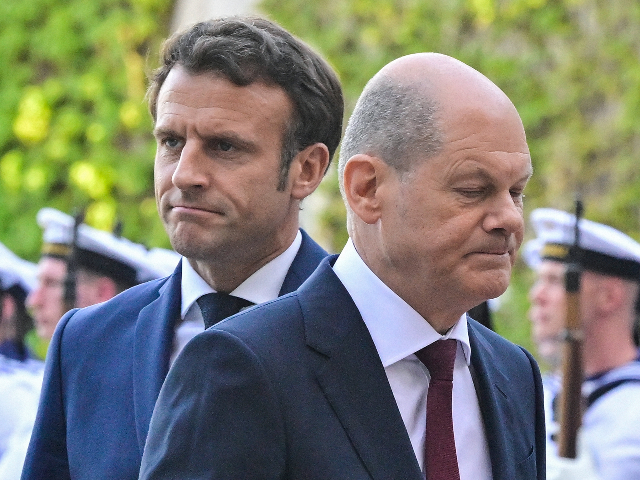French president Emmanuel Macron and German chancellor Olaf Scholz urged Russian president Vladimir Putin to lift the blockade on Ukrainian grain in order to mitigate the growing global food crisis.
In an 80-minute phone call on Saturday, Macron and Scholz asked Putin to lift Russia’s blockade of the port city of Odesa (Odessa) in order to allow Ukrainian wheat and other foodstuffs to once again flow from the Black Sea to countries dependent on the grain.
Mr Putin, claimed in the phone call that the grain shipments were being prevented by “an erroneous economic and financial policy of Western countries, as well as by the anti-Russian sanctions,” despite there being no sanctions levied against Ukrainian food or fertiliser as has been put in place against Russian exports.
The Russian leader said per France’s Le Figaro newspaper that “Russia is ready to help find options for an unhindered export of cereals, including Ukrainian cereals from ports on the Black Sea,” but added that such an arrangement will be dependent on the “lifting of appropriate sanctions” against Moscow.
According to an analysis from The Economist, 98 per cent of Ukrainian corn and wheat was exported via the water prior to the full-scale invasion of the country by Russia in February. Presently, around 25 million metric tons of corn and wheat are currently sitting in silos rather than being shipped to countries in need.
The magazine noted that this is “equivalent to the annual consumption of all of the world’s least developed countries” combined.
Putin: Ukrainian Sea Mines, Western Sanctions to Blame for Lack of Food Shipments, Not Russia https://t.co/lkDj5iURIA
— Breitbart London (@BreitbartLondon) May 28, 2022
Meanwhile, the European Union, which has previously sought to export grain from Ukraine via Soviet-era rail networks, is reportedly considering a naval mission to clear the Russian blockade. Spain’s El Pais newspaper reported that at a meeting on Monday on the subject of global famines, Brussels will consider sending ships to the Black Sea.
“The EU is ready to mobilize all possible resources to facilitate the exit of grain accumulated in Ukrainian silos and ports. And on the table is even the possibility of launching a naval mission to escort the passage of freighters from Ukraine through a Black Sea infested with mines and guarded by Russian ships and submarines,” the Spanish newspaper claimed.
Ukrainian cereals continuing to be prevented from being exported threatens the possibility of global famine due to fresh harvests having no room in grain silos to be stored.
Commenting on the impending crisis, the head of the UN’s World Food Program, David Beasley, said last week: “Failure to open those ports in Odesa region will be a declaration of war on global food security.
“This is not just about Ukraine, this is about the poorest of the poor around the world who are on the brink of starvation as we speak.”
Global Food Crisis: Russia Tells West it will End Grain Blockade Once Sanctions are Liftedhttps://t.co/ukIJEp4jcR
— Breitbart London (@BreitbartLondon) May 27, 2022
In addition to calling for Russia to allow Ukrainian grain shipments to commence, President Macron and Chancellor Scholz called on Putin to engage in “serious and direct negotiations with the Ukrainian president and a diplomatic solution to the conflict.”
The European heads of state also demanded an “immediate ceasefire and a withdrawal of Russian troops” from Ukraine as well as the release of thousands of soldiers of the Neo Nazi linked Azov Battalion, who were captured by Russia after the fall of the Azovstal steel plant in Mariupol earlier this month.
While Mr Putin said that he was “open to a resumption of dialogue” with Kyiv (Kiev), it is currently unclear as to how fruitful such negotiations would prove, given President Volodymyr Zelensky’s pronouncement this week that Ukraine will fight “until it regains all its territories”.
Engineered Global Food Crisis? More Claims of Russia Deliberately Bombing Grain Siloshttps://t.co/E99RG8BbXb
— Breitbart London (@BreitbartLondon) April 28, 2022
Follow Kurt Zindulka on Twitter here @KurtZindulka

COMMENTS
Please let us know if you're having issues with commenting.